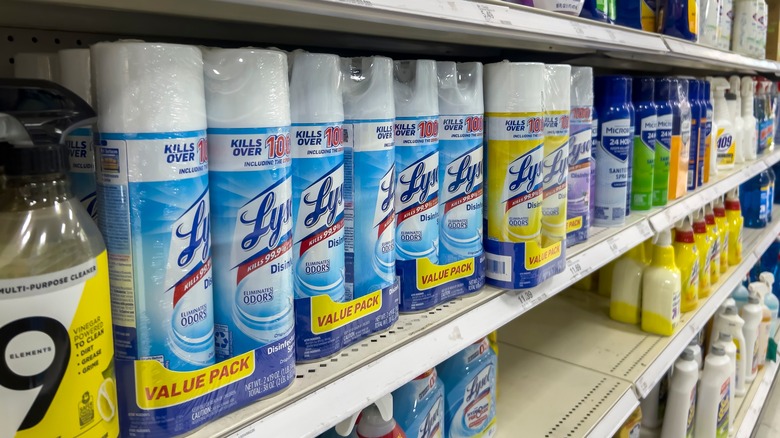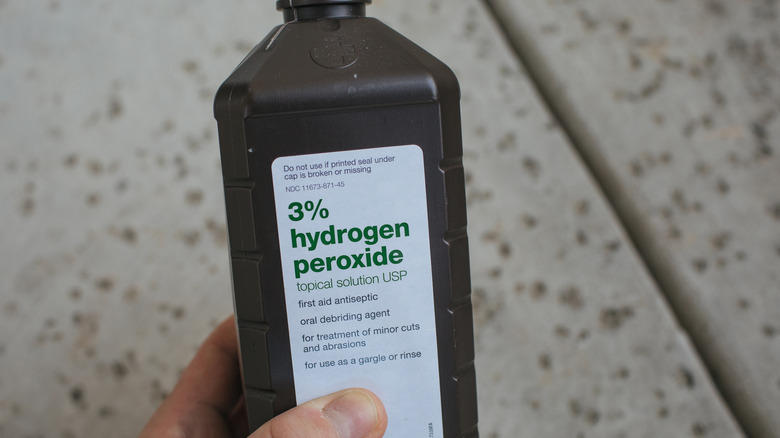Here's What Happens When You Mix Lysol With Hydrogen Peroxide For Cleaning
Lysol is a powerful disinfectant that has been used by households as an easy way to clean homes for more than 100 years. Today, parent company Reckitt sells several Lysol varieties, including bleach and bleach-free options. Yet, can or should you mix hydrogen peroxide with bleach-containing Lysol to make a "supercleaner"? No. Mixing household chemicals can be dangerous, especially when you throw bleach in the combination. Mixing bleach with hydrogen peroxide can lead to a powerful explosion, Advanced Chemical Safety CEO Neal Langerman explained to Chemical and Engineering News, while FEMA advises "Don't mix [cleaning] products. This can cause deadly gases or cause a fire."
You may already know not to mix hydrogen peroxide with vinegar. In addition, when you mix hydrogen peroxide with bleach, it creates a rapid release of oxygen gas as a result of the hydrogen peroxide's decomposition, bubbling during the process. Both bleach and hydrogen peroxide are oxidizing agents, but bleach is the more powerful oxidizer. The combination of the two turns the hydrogen peroxide into a reducing agent, which makes it lose electrons while it gives bleach electrons, resulting in a bubbling solution of water and oxygen gas. Instead of mixing dangerous chemicals together, you can purchase a bleach-free Lysol specially formulated with hydrogen peroxide for cleaning use. These products, such Lysol With Hydrogen Peroxide Multi-Purpose Cleaner, are a much safer option. You can also clean with hydrogen peroxide individually, and here's how.
Cleaning with hydrogen peroxide
Cleaning with hydrogen peroxide is easy. You can mix it with equal parts water to make a disinfectant solution. If you want a powerful hydrogen peroxide cleaning option, you can mix it with lemon juice. Combine 1 cup of hydrogen peroxide, 2 cups of distilled water, and 2 or 3 tablespoons of lemon juice in a spray bottle. You now have a natural disinfectant boosted with the citric acid of lemon to tackle tough buildup in your bathroom and other spaces thanks to its ability to kill fungus and bacteria.
When cleaning, be aware that hydrogen peroxide can bleach fabric, so be careful spraying it on leather, textiles, and other materials that may bleach. You should also be sure to check your hydrogen peroxide's expiration date and always store in a cool, dark place. Hydrogen peroxide's brown bottle helps with light protection as light exposure speeds up its decomposition, so once you open the bottle, it's only good for six months.

